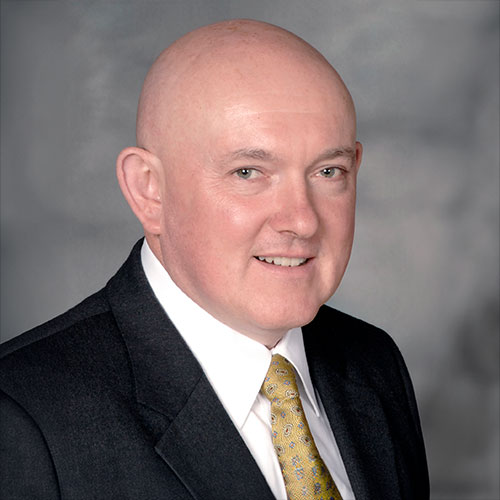
Global Perspectives: Donald Kohn on Greenspan and Bernanke, the global financial crisis and the COVID-19 challenge
Donald Kohn is the Robert V. Roosa chair in international economics and a senior fellow in the economics studies program at the Brookings Institution, which he joined in 2010 after a 40-year career at the Federal Reserve.
Kohn began his career as a financial economist at the Federal Reserve Bank of Kansas City in the early 1970s and rose through the ranks, becoming a vice chairman of the Federal Reserve Board of Governors, a position he held from 2006 to 2010. As vice chairman, Kohn played a pivotal role in devising the strategies that the Fed used to mitigate the effects of the global financial crisis of 2007–09.
In addition to his current position at the Brookings Institution, Kohn also serves as an external member of the Bank of England’s Financial Policy Committee. He is the recipient of numerous professional awards and was made an Honorary Commander of the British Empire in 2016.
The Federal Reserve Bank of Dallas recently hosted Kohn as part of the Bank’s Global Perspectives speaker series. This series was launched at the beginning of 2016 with the objective of bringing leaders from the worlds of business, academia and policymaking to the Dallas Fed to share their insights on global, national and regional developments. The Kohn presentation was the second Global Perspectives “virtual” event without an audience present—a result of the COVID-19 pandemic and social distancing measures.
Kohn and Dallas Fed President Rob Kaplan discussed Kohn’s career at the Fed, his experience during the global financial crisis and his thoughts on the Fed’s reaction to the current crisis. The following are excerpts from their conversation, edited for clarity, and presented by topic.
On a career at the Fed:
Kohn: It was my policy interest that made me want to join the Fed. In graduate school, I had worked on international finance, money and banking, and domestic finance. The Fed was where monetary policy was made, and that was very much at the top of my agenda in my job search. The Kansas City Fed was an attractive place for me because it was a relatively small research department. I felt like I wouldn’t get shoehorned into a small niche. I could move around and develop my interests. It was also an excellent research department and one that had sent several people to the Board of Governors in Washington, such as Lyle Gramley and Sam Chase.
In 1978, I moved from the Kansas City Fed to be chief of capital markets at the Board, where I oversaw the section of the research division that looks at capital markets, corporate markets, commercial paper markets, finance companies and securities markets. Not the ones (research operations) dealing with mortgages and consumer credit but the ones dealing with business. I oversaw the people dealing with those issues.
One of the interesting aspects of that for me was when Chrysler went bust, or was about to go bust, and Paul Volcker was put on the Chrysler loan guarantee board [in 1979]. My boss said to me, ‘You know something about corporate finance. You go down and support Paul Volcker.’ That was an amazing, wonderful experience getting to know Paul Volcker. Volcker was a very smart guy, very analytical. [He had] a great policy mind and a great memory for stuff that happened. I remained close to him up until his recent passing, and I loved discussing things with him. (Volcker died Dec. 8, 2019, at age 92.)
He remembered footnotes that he had written in Treasury papers in 1965. It was an education for me to interact with somebody who was completely devoted to public service and honored public service and a person of absolute total integrity and of purpose. [When he was under consideration as Fed Chair] he told to me he said to President Carter, ‘If you appoint me, I’m going to do something about inflation.’ And in his memoir, he (Volcker) says, he called his friend after his interview with the president and said, ‘Well, he’ll never appoint me. I told him what I was going to do.’ And Carter to his credit, called him back the next day and said, ‘I want you and I want you to do something about inflation.’
Through most of the ‘80s, I had a number of jobs in research, as deputy staff director for monetary and fiscal policy and then director of the Division of Monetary Affairs. In 1987, I became secretary to the Federal Open Market Committee (FOMC), which is an organizational position, but it also has some important policy input. The secretary makes sure the FOMC train runs on time and prepares the minutes of the meeting. I combined that position with being head of the Monetary Affairs Division. In that role, I was preparing what was at that time called the Blue Book, which was a menu of policy choices for the FOMC. So, I was deeply involved in the monetary policy process, both the technical aspects of it and the policy aspects of it for 15 years before I joined the Board of Governors.
On joining the board of governors:
For many years, I worked with (Volcker’s successor) Alan Greenspan. I was perhaps his right-hand man. He called me his mentor when he first joined the Board. I am not sure how much credit I want to take for that. But yes, we had a very close working relationship, and he is a very different person from Paul Volcker. I greatly enjoyed working with Alan. He was open to suggestions. We had great conversations. He has a wonderful mind for empirical economics, and he knew the markets, he knew economics and had a great intuition for where the economy was going. We had a wonderful relationship, one that I have kept up since I have left the Fed, and he has too.
It was a pretty big change from being on the staff to being on the Board (in 2002). When you're a staff member, you can provide the best evidence and the best analysis you can make to the Board members, but ultimately you're not responsible, they are. And you can always say, ‘Why did those idiots do that?’ But all of a sudden, you are one of those idiots, and you are responsible for making the decisions. Another big change for me was going from a very private inside role to an outside role, such as making speeches. I had never gone on TV. But I did give speeches that I tried to use to illuminate what the Fed was doing and why it was doing it, as well as explaining the economic situation. Adapting to that public role was important.
On being vice chair during the global financial crisis:
Well, it was very intense obviously, as you are finding out right now [during the COVID-19 pandemic]. It was a 24/7 job. I do not know how many phone calls I took from (Treasury Secretary) Tim Geithner at three in the morning. It was very challenging because we were facing something that had not happened before, and we were trying to devise an effective response. It felt like I was taking all that experience you talked about that I had from 1970 through fall 2007, when things started to break. I felt like I was bringing all that to bear. All the institutional knowledge and analytic training, my devotion to public policy, how to get it right, how to minimize the damage. It was very challenging and ultimately, very rewarding, but it was a very, very intense time.
We were very lucky that [Greenspan successor] Ben Bernanke was the chairman of the Fed at the time. Not that Paul Volcker or Alan Greenspan would not have been just as good. But Ben was really the right person in the right spot at the right time. Here is a guy who had studied the Great Depression and who, in commenting on the role of the Fed in exacerbating the Great Depression, had famously said at a University of Chicago event held in 2002 to mark Milton Friedman’s 90th birthday: ‘You’re right, we did it. We’re very sorry. But thanks to you, we won’t do it again.’
Bernanke had thought deeply about these issues and the problems in the financial sector and how they can amplify a very horrible shock to the economy. He brought the knowledge, the historical perspective and a very open leadership style. He was very open to suggestions from anybody. He would send out emails, which he called Blue Sky emails, that said, ‘We have got this problem in, say, the commercial paper market or whatever, here are three or four ideas about how we might deal with it. But please bring me back all the suggestions you have. Let us really think about this together.’
These emails went to staff, as well as to Board FOMC members. He remained outwardly calm through all of this. He was a terrific, terrific leader. He was not afraid to act. We took a number of steps that were attacked at the time and afterwards, but he recognized what we needed to do and led us to the right place.
On the importance of bank capital and stress testing:
The Fed led the first stress test in March and April of 2009, and they were hugely consequential because we stressed the banking system to a very high degree. We were already in a deep recession, and we stressed it into a deeper recession. We said to the banks, ‘You have to be capitalized to be able to continue to make loans even under this very stressful situation.’
The one important aspect of it was transparency. Never before had a supervisory process and the results of a supervisory process been published on a bank-by-bank basis. I think the transparency contributed to the credibility, the fact that TARP [Troubled Asset Relief Program] was there to supply capital to banks that could not meet the capital needs or would not go out into the market to meet the capital needs was critically important. That was the turning point, and I think, the stress tests of the higher capitalization of the banking system were a very positive outcome from the crisis.
The stress test tells you that horrible things can happen to the economy, but the banks still have enough capital to continue to lend to U.S. businesses and households. Unlike the crisis, where freezing up of credit made a bad situation much, much worse—at least for the banking system— the public could have some assurance that there was enough capital there even in a very, very bad situation. The stress test was a key element in making sure that was true. I think that the stress test was one of the great inventions of the 21st century.
On the COVID-19 crisis:
The economic situation today is horrible. It is dire. We have had 25 million people file for unemployment insurance over the past four weeks [through late April]. This is like, 15 percent of the workforce, and there is probably more to come. There's been a sudden stop to a huge proportion of the economy unlike anything we've ever experienced before, putting tremendous strain both on businesses and on households to meet their obligations.
Going into this, the economy was in good shape. It was growing at about a 2 percent rate. The unemployment rate was as low as it is been in several decades. It was fantastic, it was really, really good. The banking system was much stronger. Everything seemed to be going well. Yes, there were elements of instability in the financial system, and the Fed pointed to them—for example, corporate debt. Basically, things were running pretty well and then, this thing came from the public health side.
I think the Fed’s response has been very, very, good. You recognized pretty early that something bad was happening, you came in with your guns blazing with monetary policy and discount window lending, trying to help the Treasury market, the mortgage-backed securities market and so on.
There is nothing you can do really about the depths of the recession—that is kind of given by the health issue and the shutdowns. But you can make sure that the financial markets do not make it worse and that the financial markets will support the recovery of the economy as the health crisis passes. And, I think the Fed has done quite an exemplary job with that.
The Treasury and Congress were a little slower to react to this. There was a denial in certain quarters about the seriousness of this issue. But boy, they have acted with alacrity over the last couple of weeks. There is a hole in the economy, and I think it is actually best filled with fiscal policy, giving people incomes, supporting businesses, so they don't go under. If we can reduce the scarring, if we can keep these businesses alive through support from the fiscal authorities with the support of the Federal Reserve, then they will be there when we get to the other side of this valley.
About the Author
Mark A. Wynne
Wynne is vice president and associate director of research in the Research Department at the Federal Reserve Bank of Dallas.
The views expressed are those of the author and should not be attributed to the Federal Reserve Bank of Dallas or the Federal Reserve System.




